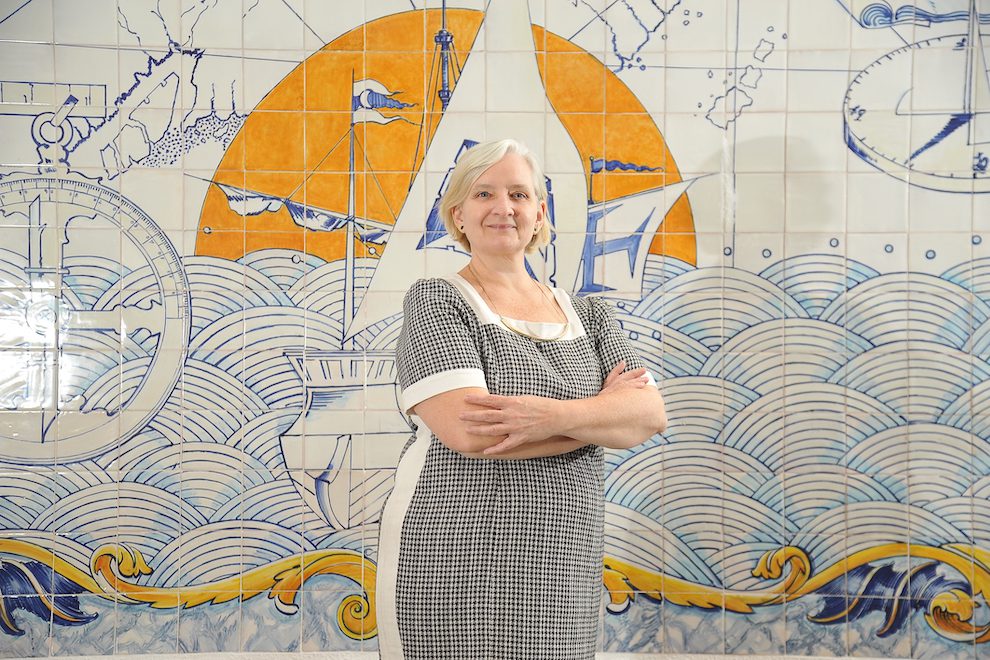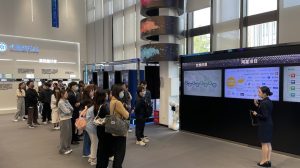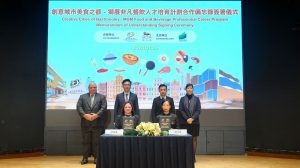IFTM is holding its fifth annual Tourism Education Student Summit (TEd Summit) on 27 May, but with an amended format. This is the first TEd Summit taking place online, due to the fact that precautions related to the Covid-19 pandemic have prevented large group gatherings.
All the addresses, keynote speeches and panel sessions from the 1-day event will be delivered online (click here for dedicated website).
The event is an opportunity for the Institute’s top graduating Bachelor of Science student researchers to present their findings to panels of business executives, government officials and specially-invited community figures. The TEd Summit enables business executives to learn about the next generation of qualified industry professionals. “The whole purpose of this event is to establish a conduit between capable, young professionals who are entering the industry, and industry leaders,” says IFTM Thesis/Project Regent Dr. Laurie Malungu.
“Initially we thought the TEd Summit would be a great opportunity for our students to connect with potential future employers,” Dr. Malungu states. “But over the years,” she adds, industry executives, in greater numbers, have also begun to show a keen interest in the results of research done by IFTM students. This is particularly true for areas that “are beneficial” to tourism and hospitality operators but that these firms “may not have the time to spend conducting an analysis”. Industry executives have reported that this is “something very good for them,” says Dr. Malungu. The win-win situation both for students and the sector has been “a wonderful development” arising from TEd Summits.
The IFTM scholar points out that producing an individual piece of research can inspire students to refine their career ambitions. It can have a transformative impact on students, as they become equipped with new skills – including perseverance, creativity and resourcefulness – as well as tools to solve real-life issues throughout their careers.
“It’s good to listen to future industry professionals talking about areas that should be improved,” says Dr. Malungu.
She acknowledges that holding the TEd Summit 2020 online precludes the usual spontaneous contact on the sidelines between the students and figures in the tourism and hospitality industry. However, she says IFTM has improved its information technology facilities to attract the biggest attendance yet for this TEd Summit, with participants drawn from all over the Guangdong-Hong Kong-Macao Greater Bay Area. She hopes the virtual event format can double the number of participants who typically participate in the TEd Summits. As well, holding the event online helps to engage the participation of scholars from Hong Kong Polytechnic University and Sun Yat-sen University in Guangdong – institutions, like IFTM, belonging to the Guangdong-Hong Kong-Macao Greater Bay Area Tourism Research Alliance. “It allows more people to become familiar with the event,” she says.
Greater Bay Area focus
The capstone research thesis/project has been a mandatory requirement since academic year 2015/16 for each Bachelor of Science candidate participating in the daytime programmes of IFTM. The aim is to give undergraduates the chance to think independently, and to develop critical and analytical skills.
IFTM’s thesis requirement for undergraduate study has drawn international attention since its introduction. Many students have – on the strength of their completed thesis – been invited to be present at international conferences and similar events to share their research findings.
The Greater Bay Area and regional collaboration are themes which have attracted the interest of IFTM research students in academic year 2019/20. Dr. Malungu says the TEd Summit 2019 created ripples of interest regarding those topics. That event saw Dr. Xu Honggang, Dean of the School of Tourism Management at Sun Yat-sen University, give a keynote address about the relationships among the constituent parts of the Greater Bay Area. Mr. John Sloane, Galaxy Macau Assistant Senior Vice-president for Food and Beverage Operations and Culinary, spoke at the 2019 event about sustaining a supply chain in the region.
In addition, some IFTM students hail from parts of the Greater Bay Area, and Covid-19 precautions have confined many to their homes. Dr. Malungu says it is little wonder that they focused their research on matters closer to home.
She says that student researchers presenting at the TEd Summit 2020 are raising a wide range of topics applicable to the Macao region and beyond. Culinary tourism, gender issues in the tourism industry and cultural intelligence are just a few of the focus areas in this year’s TEd Summit programme.
Another advantage of holding the TEd Summit online is that it makes it easier for internationally renowned scholars to take part. Dr. Malungu says she is excited that Dr. Sara Dolnicar of the University of Queensland in Australia will deliver the academic keynote speech, focused on “Environmentally sustainable tourism – before and after COVID-19”. This year’s industry keynote speaker is retiring MGM China Chief Executive Mr. Grant Bowie. His keynote, “Career retrospective and predictions on the future of tourism and hospitality’ will no doubt be inspirational for young industry professionals in attendance.









